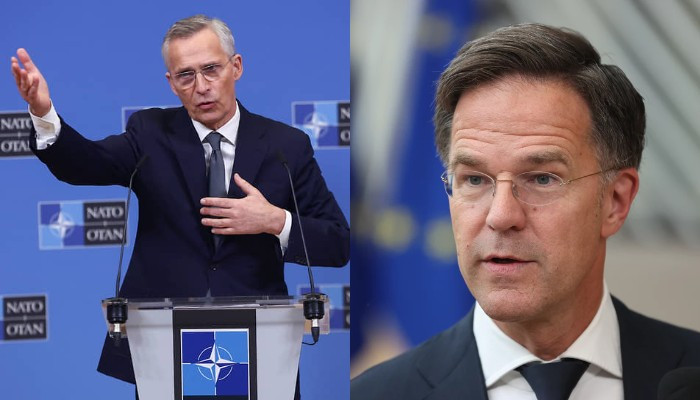NATO’s Stoltenberg says Dutchman Rutte is a strong candidate to replace him
 1994 Tuesday, 18 June, 2024, 21:48 NATO Secretary-General Jens Stoltenberg described Mark Rutte on Tuesday as a very strong candidate to replace him after the departing Dutch prime minister won the support of Hungary and Slovakia. The defence alliance takes decisions by consensus, so any candidate needs the support of all 32 allies. Only Romania, whose President Klaus Iohannis is also vying for the job, is still opposed to Rutte’s candidacy. Dutch news outlet NOS quoted sources close to the matter as saying Rutte would succeed Stoltenberg, who steps down in October after nearly a decade at the helm. Reuters could not immediately obtain a comment from NATO on the news report. Stoltenberg said the decision-making process was very close to a conclusion. “I think it’s obvious that we’re very close to a conclusion in the alliance for allies to select the next Secretary General. And I think that’s good news,” he told a press conference with U.S. Secretary of State Antony Blinken in Washington. “I think Mark Rutte is a very strong candidate. He has a lot of experience as prime minister, he is a close friend and colleague and I therefore strongly believe that very soon the alliance will have decided on my successor and that will be good for all of us, for NATO. And also for me.” Hungary’s backing followed a meeting Prime Minister Viktor Orban had with Stoltenberg last week, where the two sides agreed that Hungary would not block NATO decisions on providing support for Ukraine but has agreed that it would not be involved. “PM Mark Rutte confirmed that he fully supports this deal and will continue to do so, should he become the next Secretary General of NATO,” Orban wrote on the X social media platform. “In light of his pledge, Hungary is ready to support PM Rutte’s bid for NATO Secretary-General.” NATO’s next chief will face the challenge of sustaining allies’ support for Ukraine’s fight against Russia’s invasion, while guarding against any escalation that could draw the military alliance directly into a war with Moscow. (Reporting by Humeyra Pamuk, Benoit Van Overstraeten, Boldizsar Gyori, Anita Komuves, Alan Charlish, Jan Lopatka, Jason Hovet; Writing by Timothy Heritage; Editing by Jon Boyle) |

CNN reported a record 300-year drop in the birth rate in Ukraine
393Yesterday, 22:55
Ararat Mirzoyan will pay a working visit to Switzerland
327Yesterday, 21:43
Climber convicted of manslaughter after leaving girlfriend on Austria’s highest peak to seek help
390Yesterday, 20:52
Armed man shot and killed after entering Mar-a-Lago secure perimeter, Secret Service says
379Yesterday, 18:24
Third Tejas LCA crash: Aircraft damaged, pilot safe after landing incident
356Yesterday, 18:12
Epstein estate agrees to $35 million settlement in victim claims
60521.02.2026, 16:30
US Amasses Forces as Trump Says Iran Has Just Days for Deal
95320.02.2026, 01:01
Trump Gets Pledges for Gaza Reconstruction and Troop Commitments at Inaugural Board of Peace Talks
95020.02.2026, 00:18
